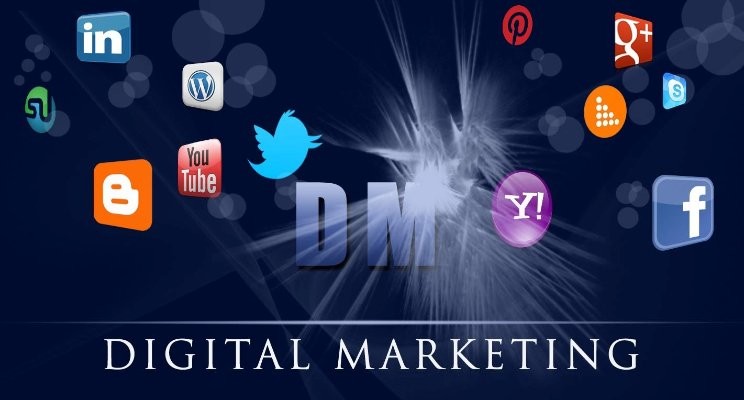Introduction
In the vast landscape of marketing, the digital realm continues to evolve rapidly, reshaping how brands connect with consumers. As technology advances and consumer behavior adapts, the future of digital marketing presents a dynamic and ever-changing landscape. This article delves into the emerging trends and innovations shaping the future of digital marketing, exploring the transformative power of data, AI, personalization, immersive experiences, and sustainable practices.
- Data-Driven Decision Making
Data has become the lifeblood of modern marketing, empowering businesses to make informed decisions and optimize their strategies. In the future, the importance of data will only continue to grow, with marketers leveraging advanced analytics tools to gain deeper insights into consumer behavior, preferences, and trends.
a. Predictive Analytics: Predictive analytics will play a crucial role in anticipating customer needs and behaviors, allowing marketers to tailor their campaigns with precision. By analyzing historical data and employing machine learning algorithms, businesses can forecast future trends and personalize their marketing efforts accordingly.
b. Real-Time Data Analysis: The ability to gather and analyze real-time data will become increasingly valuable, enabling marketers to adapt their strategies on the fly and capitalize on emerging opportunities. Real-time analytics tools provide instant feedback on campaign performance, allowing for agile decision-making and optimization.
c. Privacy and Ethical Considerations: As data collection practices come under scrutiny, marketers must prioritize privacy and ethical considerations. The future of digital marketing will see a greater emphasis on transparency, consent, and data protection, ensuring that consumer trust remains intact.
- Artificial Intelligence and Automation
Artificial intelligence (AI) and automation are revolutionizing digital marketing, streamlining processes, and enhancing efficiency. In the coming years, AI-powered tools will continue to transform various aspects of marketing, from content creation to customer service.
a. Chatbots and Virtual Assistants: Chatbots and virtual assistants powered by AI will become ubiquitous, providing personalized customer support and driving engagement across multiple channels. These intelligent bots can answer queries, recommend products, and even complete transactions, delivering seamless experiences round the clock.
b. Hyper-Personalization: AI enables hyper-personalization at scale, allowing marketers to deliver highly targeted content and offers based on individual preferences and behaviors. By analyzing vast amounts of data, AI algorithms can segment audiences with precision and deliver tailored messages that resonate with consumers on a deeper level.
c. Content Generation: AI-driven content generation tools are revolutionizing the way marketers create and distribute content. From generating product descriptions to writing blog posts, AI algorithms can produce high-quality content quickly and cost-effectively, freeing up human marketers to focus on strategy and creativity.
- Immersive Experiences
In an increasingly digital world, brands are turning to immersive experiences to captivate audiences and forge meaningful connections. Augmented reality (AR), virtual reality (VR), and mixed reality (MR) technologies are transforming the way consumers interact with brands, blurring the lines between the physical and digital worlds.
a. AR and VR Marketing: AR and VR offer immersive storytelling opportunities, allowing brands to create memorable experiences that resonate with consumers. Whether it’s virtual product demonstrations, interactive 3D ads, or immersive brand activations, these technologies enable marketers to engage audiences in new and exciting ways.
b. Virtual Events and Experiences: The rise of virtual events and experiences has accelerated in the wake of the COVID-19 pandemic, and this trend is likely to continue in the future. From virtual trade shows to immersive brand showcases, virtual experiences offer a cost-effective and accessible way to reach global audiences and drive engagement.
c. Interactive Content: Interactive content formats such as quizzes, polls, and 360-degree videos are gaining traction as marketers seek to provide engaging experiences that encourage active participation. By involving consumers in the storytelling process, interactive content fosters deeper engagement and strengthens brand affinity.
- Sustainability and Social Responsibility
In an era of heightened environmental and social awareness, consumers are increasingly gravitating towards brands that demonstrate a commitment to sustainability and social responsibility. The future of digital marketing will see brands incorporating sustainability into their messaging and initiatives, aligning with the values of socially conscious consumers.
a. Purpose-Driven Marketing: Purpose-driven marketing will take center stage, with brands using their platforms to advocate for social and environmental causes. From supporting charitable initiatives to promoting eco-friendly practices, brands that authentically embrace purpose-driven marketing can build stronger connections with consumers and drive brand loyalty.
b. Sustainable Practices: Marketers will need to adopt sustainable practices throughout the entire marketing lifecycle, from production and distribution to consumption and disposal. This includes reducing carbon emissions, minimizing waste, and prioritizing eco-friendly packaging and materials.
c. Transparency and Accountability: Transparency and accountability will be paramount as consumers demand greater visibility into brands’ sustainability efforts. Marketers must be honest and forthcoming about their environmental and social impact, providing clear metrics and benchmarks to demonstrate progress towards sustainability goals.
Conclusion
The future of digital marketing holds immense promise, driven by technological advancements, shifting consumer expectations, and evolving societal values. By embracing data-driven decision-making, leveraging AI and automation, crafting immersive experiences, and prioritizing sustainability and social responsibility, brands can stay ahead of the curve and forge deeper connections with their audiences in the digital age. As the digital landscape continues to evolve, marketers must remain agile, adaptive, and innovative to thrive in an ever-changing environment.






Leave a Reply